Jacqui Louder explains how young players can survive and thrive in their first year in the AFL system
Stepping from anonymity and into the AFL spotlight can be tough for draftees – but a leading psychologist says there are ways for them to cope.
AFL
Don't miss out on the headlines from AFL. Followed categories will be added to My News.
It’s the blueprint one of the AFL’s leading sports psychologists gives every draftee to help adjust to life in the big time.
Renowned sports and performance psychologist Jacqui Louder, who works with Collingwood and Melbourne Storm and previously North Melbourne, said the transition from anonymity to the fast lane can be bumpy.
Although, she said there were a host of different ways for 18-year-olds to ease their transition into the professional ranks.
“It’s a massive adjustment because you’re going from an environment where you’re surrounded by other 18-year-olds and you’re one of the best in that group to the AFL,” she said.
“All of a sudden there are thousands of people who go and watch your matches, there’s massive expectations and you’re now training with grown men and playing against grown men.
Watch the 2020 AFL Draft Live on Fox Footy on Kayo. New to Kayo? Get your free trial now & start streaming instantly >
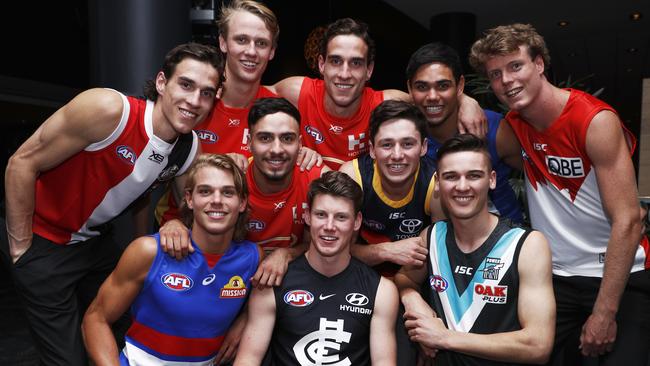
“You’re working with coaches old enough to be your dad, so everything changes and no one prepares them for that.
“They prepare them for the physical stuff but they don’t really focus on some of the other stuff they really need to develop in their first 12 months.”
Here are eight ways to help first-year players survive and thrive in the early days of their AFL journey.
1. MAKE A LIST OF THE PEOPLE WHO MATTER
When players enter the AFL, it comes with plenty of hangers on and people who want to rub shoulders with them just because they’re now someone of note.
Louder said it was important draftees remained true to themselves and remember where they came from.
“The thing I tell draftees is before the draft, make a list of your five closest mates,” she said.
“Those people knew you before you potentially became an AFL superstar or before you go through the ups and downs and make sure you stay in touch with those people through your whole career.
“Because they’re the ones that know your family and you have all the memories with them before you had major expectation placed on you.”
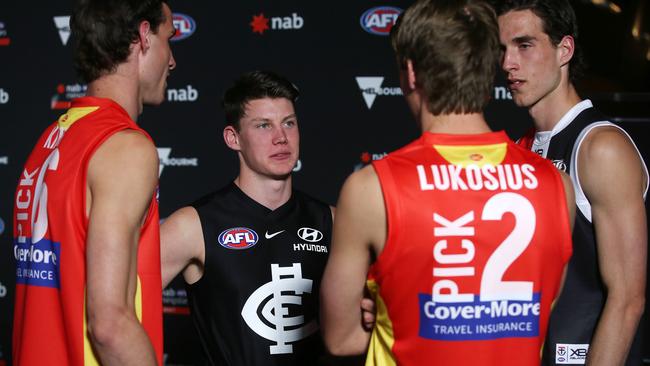
2. STAY AT HOME
First-year players are often in a rush to leave the family nest for the inner city and a shared house with new teammates.
Although, Louder said it was more preferable for them to stay with their family in year one if that option is available.
“Where possible, in the first year I always tell draftees to stay home,” she said.
“This is the first time they’ve done footy as a full-time job and the first time they’ve had a major weights program so they’re going to be exhausted.
“They’ve got all these team meetings and expectations of training levels and then taking in everything that’s required of them from the AFL and everything else.
“If you can, stay at home where you’ve got mum and dad and where you don’t have to worry about what anyone else thinks.
“You can be yourself and you’re sleeping in your own bed and mum or dad is making your meals, so you don’t have to think about some of those life skills.
“You can get that in the second year, but the first year is to me about as much stability as you can keep because it’ll help you transition better.”
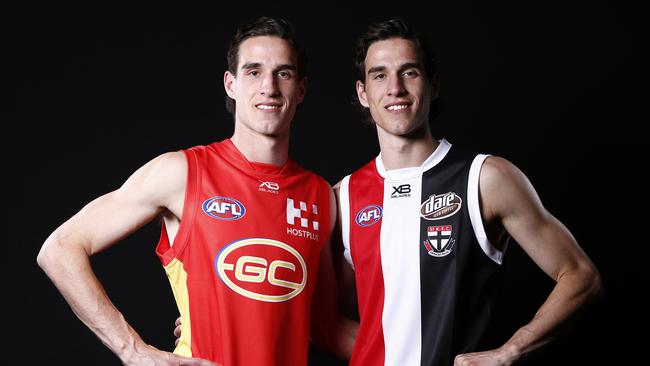
3. BUILD RELATIONSHIPS AT THE CLUB
In a player’s first year, they need to be social butterflies.
Not out on the town, but within the four walls of their new club.
Louder urged draftees to nurture bonds with people in all departments of the club, and to immediately seek out their club psychologist and player development manager.
“The things I’m telling players to focus on is, first and foremost, to really build your relationships with people and the other players,” Louder said.
“Build them with the staff, know who your player development manager and who your psych is at your club because they’re going to help you as a person.
“Everyone else will be looking at your footy but those guys will actually help you as a person, which I think is the part we need to keep getting better at with these guys.”
Louder said the adjustment from the junior ranks to the AFL can hit many right between the eyes.
“You’re in an environment that’s full of men and you’ve come from an environment that is full of 18 year-olds,” she said.
“You’ve watched these guys for years and then all of a sudden you’re expected to sit in team meetings and contribute when you’re 18.
“If the captain or the senior guys say something, there’s no way an 18-year-old is going to go against that.
“They could have come from an environment where they leave the meetings as very big contributors in those to all of a sudden just questioning themselves in areas they would have never questioned themselves in before.
“So I think the psychological component of the transition is something we need to constantly be working on with these guys and make it OK for them to come in and build those relationships.”
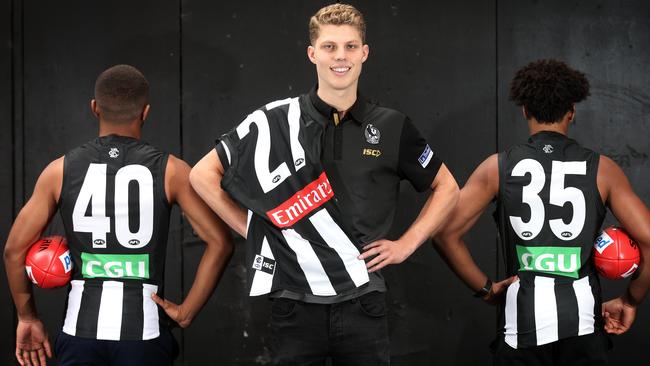
4. GRAB A COFFEE WITH SENIOR PLAYERS
As a first-year player, it can be easy to retreat into your shell.
But Louder said the answer to any coffee invitation from an older player should always be ‘yes.’
“Most of the senior guys at clubs are good with this, they’ll take the young guys out for coffee,” she said.
“Take those opportunities if you get them, don’t shy away from them because you might feel a bit uncomfortable.
“If you get it, take it and then ask those guys the questions about how they manage it all.
“Pick the ones at the club that seem to manage it well and get around them and spend some time with them.
“That’s where that relationship development is really important because they’ll give you the right guidance.
“No one at your own club wants to see you sink.”
5. DON’T RUSH INTO GETTING A MANAGER
Many first-year players think getting a player manager is a priority.
Although, Louder advised players to use their parents to guide them in the early stages of their career before rushing into representation.
“Everyone is in a rush to have a manager and all that, but the contract is set when you’re a draftee,” she said.
“A manager doesn’t negotiate that, so if you don’t have a manager for the first 12 months that’s OK.
“They feel this pressure to have one straight away and people will sell them the world.
“But a manager doesn’t really come into play until your second contract.
“So players don’t have to do it that way, they can find their feet and use their parents to be their guides as well.”
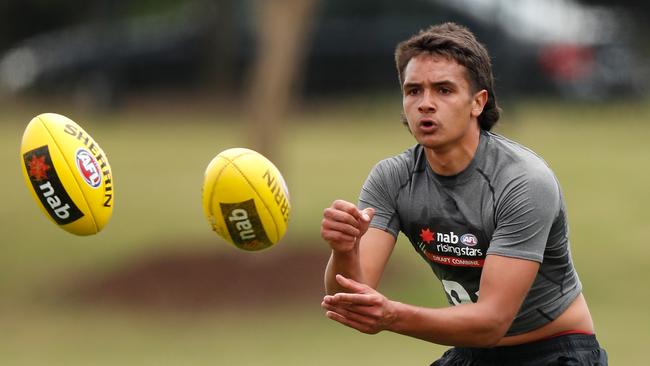
6. LIMIT YOUR SOCIAL MEDIA PRESENCE
When a young player is drafted, it is not uncommon for him to wake the following day with a few thousand more followers on Twitter or Instagram.
It is often one of the first tangible signs of their new life.
But should first-year players even be on social media?
“If it was my preference, no, because I think there is so much other stuff to take in during the first year,” Louder said.
“But if they are going to be on it, the only things I would be putting on there is retweeting things posted by the club.
“So then you know it’s not going to get you in trouble.”
Louder said less was more when it came to social media for young players.
“If you’re going to have an account, always check with your club media people and get it checked before you send something out,” she said.
“Because the intention might be innocent but until you know what the sport is like and who are the right journos and media people and what your club fans are like and general fans are like.
“Until you know that, I would not be doing anything off the cuff.”
7. DEALING WITH FAME
Some players will become overnight stars, and they’ll experience everything that comes with it.
It can be head spinning, and Louder said it was important for the youngsters to remain as grounded as possible.
“It’s very enticing when you’re giving all this stuff for free and everyone knows who you are,” she said.
“And at 18 you don’t know who you are.
“Your whole life you’ve been at school, so this is why I say connecting in with your psych and your PDM at your club ASAP when you get there is really important.
“They will help you develop your sense of self.
“They will get to know your family and understand who you are as a person and who your family is.”
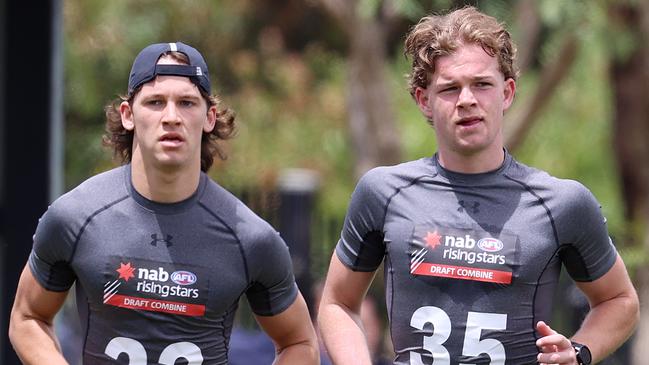
8. TAKE IT ALL IN
THERE will be bumps along the way.
Louder always tells young players to not put too much pressure on themselves when they first arrive at a club.
“They’re allowed to make mistakes at 18,” she said.
“You’re coming in as not a ready-made AFL player, you’re a draftee.
“It’s us normalising it and reminding them that this is where you’re at, we don’t need you to be Scott Pendlebury in your first year.
“We need you to be you and learn the ropes.
“If you’ve got a work ethic and you’re willing to take instruction and you’re willing to learn and develop relationships, those are the key things.
“If you can do those, you’ll give yourself every chance to be successful.”
More Coverage
Originally published as Jacqui Louder explains how young players can survive and thrive in their first year in the AFL system




